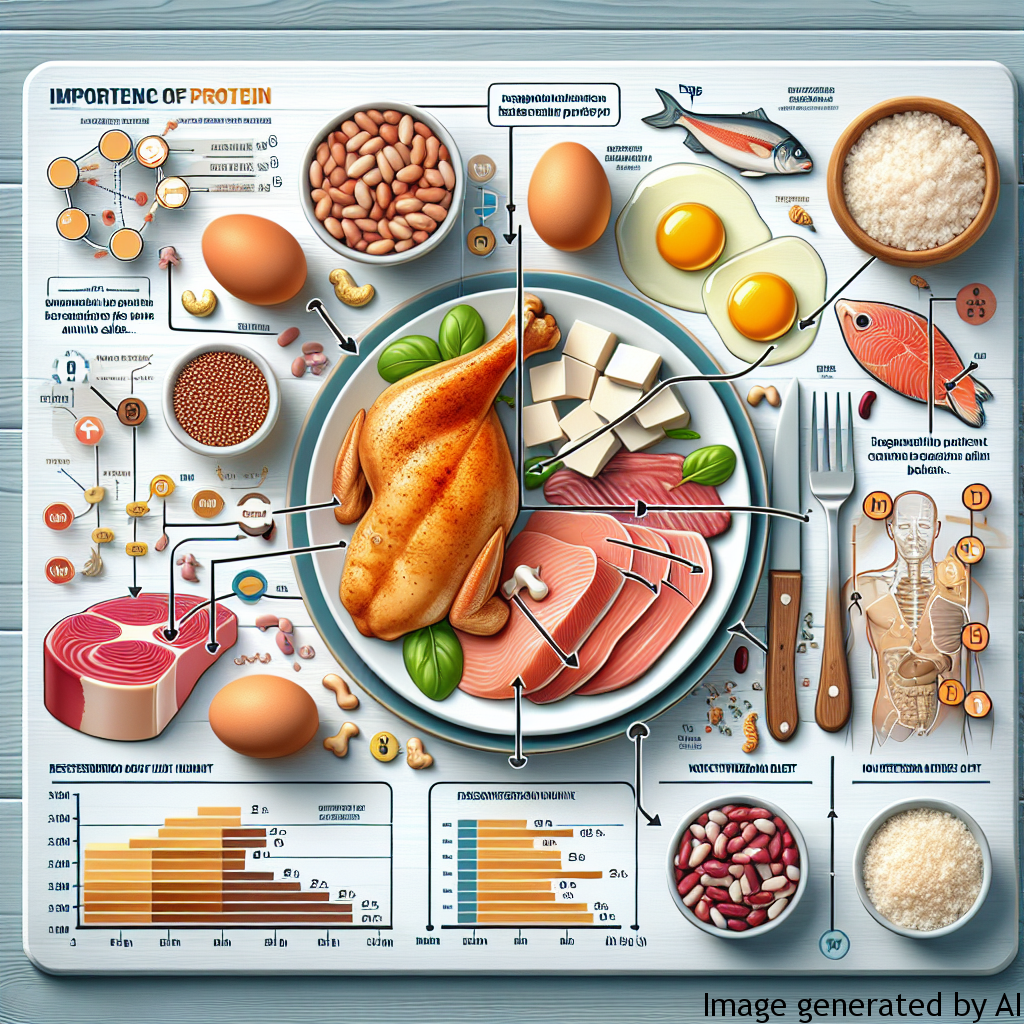Introduction
Protein is an essential nutrient, necessary in the human diet for the growth and maintenance of body tissues, immune function, and the production of enzymes and hormones. Despite its relevance to the body’s overall health, protein as a dietary nutrient is often misunderstood or overlooked. This article reflects on the significance of protein in the diet and its impact on health and wellness.
The Role of Protein in the Body
Protein, when taken in our regular diet, breaks down into amino acids in our body that are used to build and repair cells and tissues, including muscles, skin, hair and, nails. Amino acids also play a role in the formation of enzymes and hormones that regulate body functions.
Requirement of Proteins
The daily dietary protein requirements differ from person to person, with factors such as age, weight, activity levels, and health status playing a role. On average, an adult man or woman needs about 0.6 grams of protein per kilogram of body weight. However, active individuals or those in unique phases of life, such as pregnancy or recovery from an illness may require more.
Protein Deficiency
Protein deficiency, while uncommon in developed countries, can lead to muscle wasting, weakened immunity, and other health problems. It is crucial, particularly for vegetarians and vegans, to consume a diverse range of protein-rich foods to meet their daily requirements.
Examples of Protein Benefits
Protein is a powerful nutrient contributing to strong health. For example, consuming a high protein diet contributes to weight loss as protein-induced satiety lowers food intake. Protein is beneficial for maintaining a healthy musculature, particularly useful for athletes and the aging population. It also strengthens the immune system, promotes healthy hair and nail growth, and aids in wound healing.
Tips to Include Protein in Diet
One can increase their protein intake by including lean meats, such as chicken or turkey, fish, eggs, or plant-based proteins like lentils, chickpeas, quinoa, and hemp seed in their diet. Protein supplements like whey, casein, or plant-based protein powders can also be a convenient way to increase dietary protein. However, it’s best to derive the bulk of your protein from whole foods for better overall nutrition.
Conclusion
In conclusion, protein is a vital aspect of a balanced diet. It supports numerous bodily functions and significantly improves health and well-being. The incorporation of high-protein foods or protein supplements in the daily diet is necessary to meet the recommended daily intake and maintain a healthy lifestyle. It is important to remember that while protein is essential, it is a part of the macronutrient trio – protein, carbohydrates, and fats – all of which are necessary for overall health and balance.

